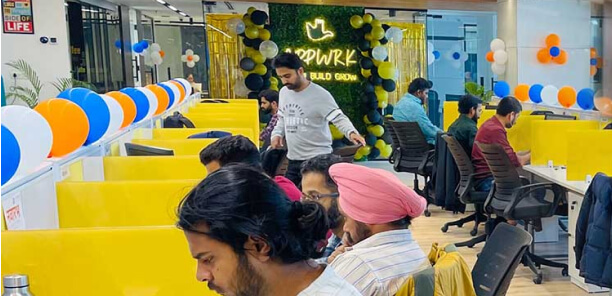Technologies we work on
Several technologies & tools can be used for Testing
and many more...
Mobile Testing Services
Our specialists possess deep expertise in application testing, which allows us to be the leading testing company. We have completed successful projects in different fields. We use an innovative approach for native test automation, both for Android and iOS testing. We offer all kinds of mobile app testing services such as mobile automation testing, mobile app security testing, mobile app performance testing, compatibility testing, cloud testing, regression testing, and a lot more with suitable frameworks and testing tools to realize the highest results.
Let's discuss Ideas that value your time-
Mobile Usability Testing
Usability testing shows how the product corresponds to user expectations by uncovering problems with the interface and allowing the product to be seen through the eyes of the end user. Our quality analysts ensure that your app offers a user-friendly interface and provides an engaging user experience. We understand how much your clients’ first impressions matter to you. Most users decide whether to continue with your website within just the first 8 seconds.
-
Mobile Automation Testing
Our automation testing services will help you to test your applications across multiple platforms, devices, browsers, and various wearable devices. Our developers leave no stone unturned to ensure ultimate testing success. We use data-driven and keyword-driven methods to test for smooth performance and functionality. We ensure the efficiency and timely release of your application.
-
Mobile Browser Testing
About 20 years ago, testing was limited to the desktop. With the rapidly increasing use of smartphones and simple access to the internet across the globe, testing has spread across vast platforms. There are numerous different devices readily available in the market today to view a website. Each smartphone has a varied screen size and resolution, different network speeds, and different hardware capabilities. Considering these differences, it becomes vital that a website is tested thoroughly before it is launched on different platforms.
-
Mobile Compatibility Testing
Compatibility testing is a critical part of the testing task as it ensures that the product developed is working as expected across different browsers, operating systems (OS), mobile devices, networks, and hardware because testing is all about delivering a great experience for your users. If your much-valued end users can’t use your website or app on their mobile devices, they will switch to your competitors at the drop of a hat.
-
Mobile Accessibility Testing
Mobile accessibility testing means testing mobile applications to make sure they can be used by everyone — including people with disabilities such as hearing or color blindness. The mobile accessibility testing service addresses accessibility problems with a broad range of devices including phones and tablets, wearables, and other “Internet of Things” etc. With expertise in understanding the global accessibility requirements, we’ve offered mobile accessibility testing solutions to clients in the UK and USA.
-
Mobile Functional Testing
Functional testing is carried out at various granularity levels to guarantee that your mobile application is fully compliant with its functional requirements. Our mobile testing team will make sure including backend functionality runs smoothly and satisfies all functional requirements. APPWRK offers both manual and automated mobile testing services.
-
Mobile Performance Testing
This is another important aspect of mobile testing as it determines how the stability, speed, scalability, and responsiveness of an application hold up under a given workload. It’s a key step in ensuring application quality, but unfortunately, it is often seen as an afterthought, in isolation, and to begin once functional testing is completed, and in most cases, after the application is ready to release.
-
Mobile Security Testing
Many businesses create their mobile applications for transactions such as mobile banking. As a result, it is crucial to maintain the data’s confidentiality and integrity. By completing in-depth security testing on all main platforms – iOS, Android, and Windows Mobile – our team ensures the security of your mobile apps that are installed on mobile devices. With APPWRK, you can effectively control the hazards posed by mobile apps.
-
Mobile Localization Testing
Assume you’ve developed an app that individuals from around the world can use. But do you believe it will appear in places where the language spoken by your app is unknown or unfamiliar? Forget about language; would anyone want to use an app that isn’t tailored to their specific social and cultural preferences? In this case, Localization testing services are required before the dream launch. Our testing team will give you a detailed report on the factors hindering your application from gaining worldwide recognition and remove those hindrances.
Why work with APPWRK?
Explore ideas with the expertsWebsites are designed and developed by us and are active on the internet.
Users exceptionally using our developed websites.
Startups have earned excellent revenue.
Unique and fully customized features developed.
Mobile Testing:
Mobile testing is a specialized software testing process that focuses on evaluating and verifying the functionality, performance, and usability of mobile applications on various mobile devices such as smartphones, tablets, and wearables. As the usage of mobile devices continues to grow, mobile testing has become an essential part of the software development life cycle to ensure that mobile applications deliver a seamless user experience and meet user expectations.
The Rise of Mobile Testing:
The revolutionary advent of mobile technology changed how people interact with software applications. Mobile devices have become integral to everyday life, providing users with convenience, connectivity, and access to various services. As a result, businesses have shifted their focus to mobile applications to cater to their tech-savvy, on-the-go customers. The need for Mobile Testing arises due to the diverse range of available devices, operating systems, and screen sizes. Unlike traditional desktop applications, mobile applications must function flawlessly on various devices to meet users’ expectations.
Types of Mobile Testing:
- Functional Testing:
(a) Verifying app functionality across different devices and OS versions.
(b) Testing user interactions, navigation, and input validation.
(c) Ensuring proper synchronization of backend systems with the mobile app. - Performance Testing:
(a) Assessing app response times, latency, and load handling capabilities.
(b) Identifying and resolving bottlenecks to improve app performance.
(c) Ensuring the app performs optimally under varying network conditions.
Compatibility Testing:
Testing the app on multiple devices with different screen sizes, resolutions, and hardware specifications.
Verifying compatibility with various operating systems (iOS, Android) and versions.
- Usability Testing:
(a) Evaluating the app’s user interface (UI) and user experience (UX).
(b) Gathering user feedback to identify areas of improvement.
(c) Ensuring the app is interactive, intuitive and easy to navigate. - Security Testing:
(a) Identifying and mitigating security vulnerabilities in the app.
(b) Securing user data and preventing unauthorized access.
(c) Encrypting sensitive information and implementing secure communication protocols.
Test Automation for Mobile Apps:
- The advantages of test automation in mobile testing include improved efficiency and scalability.
- Selecting the right automation tools and frameworks to test.
- Strategies for creating robust and maintainable automated test suites.
Mobile Testing Tools and Platforms:
- Overview of popular mobile testing tools for functional, performance, and compatibility testing.
- Cloud-based testing platforms for seamless testing on various devices and OS versions.
- Choosing the right combination of tools and platforms based on project needs and budget.
Challenges in Mobile Testing:
Mobile Testing comes with its unique set of challenges –
- Device Fragmentation: The vast number of mobile devices with different configurations and screen sizes makes it challenging to ensure consistent performance across all devices.
- Operating System Versions: Mobile apps must work seamlessly across various operating system versions and testing them thoroughly becomes critical.
- Mobile Networks: Testing under different network conditions, such as 3G, 4G, and Wi-Fi, ensures the app’s performance in real-world scenarios.
- User Interactions: Mobile applications heavily rely on touch-based interactions, making it crucial to test user interactions for responsiveness and accuracy.
- Security Concerns: Mobile devices are prone to vulnerabilities, and thorough security testing is necessary to protect user data and maintain app integrity.
Mobile Testing Best Practices:
To ensure effective Mobile Testing, consider the following best practices:
- Early Testing: Start testing early in development to identify and resolve issues immediately.
- Real Devices vs. Emulators: Use a combination of real devices and emulators to balance cost and test coverage.
- Test on Different Networks: Test the app under various network conditions to ensure optimal performance in different scenarios.
- User-Centric Testing: Conduct usability testing with real users to gather feedback and improve user experience.
- Security First Approach: Prioritize security testing to safeguard user data and protect the app from potential threats.
- Performance Optimization: Continuously optimize the app’s performance to provide a smooth and responsive user experience.
- Test Automation: Employ test automation to increase testing process efficiency, scalability, and repeatability.
- Continuous Testing: Implement continuous testing to ensure the app’s quality throughout the development lifecycle.
Mobile Testing Tools:
Several Mobile Testing tools are available to streamline the testing process and enhance efficiency. These tools offer features such as test automation, device cloud Testing, real-device testing, and performance monitoring. Some popular Mobile Testing tools include Appium, Selenium, Test Complete, XCUI Test, and Firebase Test Lab.
Mobile Testing in Agile and DevOps:
Integrating Mobile Testing into Agile and DevOps methodologies is crucial for achieving continuous delivery and faster time-to-market. By involving testers early in the development process and conducting frequent testing iterations, teams can detect and resolve issues promptly.
Learn more about our Mobile Testing services by reaching out to us today.
Our Other Offering
FAQs Before Hiring Mobile Testing Services
Have questions? We’re here to help.
Mobile testing is crucial for app development because it ensures that it functions as intended across various devices, operating systems, and network conditions. It helps identify and rectify potential issues, leading to an effortless user experience and higher user satisfaction.
Mobile testing faces challenges like the vast diversity of devices, screen sizes, and OS versions. Additionally, varying network conditions and limited resources on mobile devices make testing more complex. Ensuring compatibility and performance across different environments adds further complexity.
Mobile testing should include performance testing under various network scenarios, including low bandwidth and high latency conditions. One can implement caching, data compression, and graceful degradation to optimize app performance in challenging network environments.
Security testing is vital to protect user data and prevent potential breaches. Mobile apps often handle sensitive information like login credentials and payment details, making them vulnerable to attacks. Regular security testing helps identify and fix vulnerabilities before they are exploited.
Usability testing is the key to understanding how users interact with your app. Gathering feedback from real users and conducting usability tests will help identify pain points and areas for improvement, leading to a more intuitive and enjoyable user experience.
Happy Customers - Next can be You!
The product is still under development, but the client has been pleased with APPWRK IT Solutions' efforts. The team communicates daily and responds quickly via Skype or email. Their high level of professionalism allows them to produce quality work. They've also impressed with their coding skills.
Director, PlusDigitalCape Town, South AfricaThe team is delivering templated websites with zero errors within a three-day time span — meanwhile, they take ten days for custom websites. Customers can expect a high level of understanding on the part of the vendor team, using critical thinking to predict development requests.
CEO, Medical Marketing and Software CompanySan Diego, California

































































